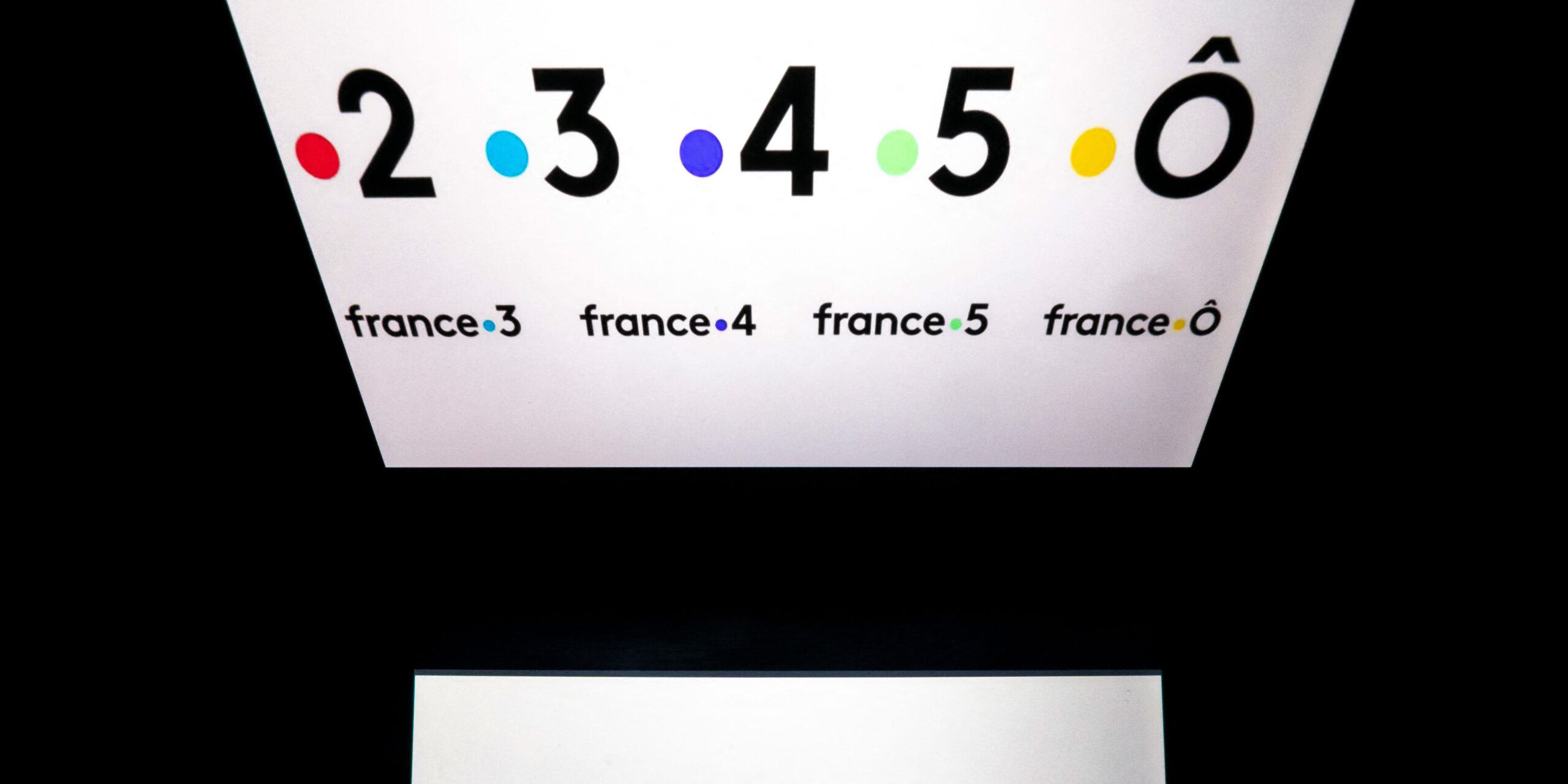Rémi Jacob, with AFP / Photo credit: Lionel BONAVENTURE / AFP
modified to
11:19 a.m., June 07, 2023
Total abolition of advertising after 8 p.m., creation of a holding company that oversees France Télé and Radio France and fewer budgetary constraints: deputies recommend insisting on the differentiation of public broadcasting in a parliamentary report. For the authors of this report consulted on Tuesday by AFP, Jean-Jacques Gaultier (LR) and Quentin Bataillon (Renaissance), respectively president and rapporteur of the fact-finding mission on the future of public broadcasting at the Assembly national, it is a question of “reaffirming the singularity of the public service”.
Proposals that are in line with the 2009 law wanted by Nicolas Sarkozy
Among their recommendations, which will be presented on Wednesday: the removal of advertising on France Télévisions channels – including program sponsorships – and on its digital platforms, such as France.tv, between 8 p.m. and 6 a.m.
“It would be a question of both reinforcing the logic of public service escaping commercial logic, but also of not unbalancing an advertising market” whose advertisers are migrating “gradually towards digital media”, justify the deputies. They also call for “a gradual reduction in advertising, in all its forms, on television and public service radio”.
Nevertheless, to compensate for the loss of advertising revenue for public broadcasting, MEPs suggest the allocation “to the nearest euro, of a fraction of the proceeds of the tax on digital services”, which concerns the largest companies in the sector.
These proposals are in line with the law of 2009, wanted by Nicolas Sarkozy, removing advertising on France Televisions between 8 p.m. and 6 a.m. Asked by AFP, France Télévisions indicated that it would not react until after the publication of the report on Wednesday.
“We must revolutionize public broadcasting”
This is a sensitive subject for the public group which, for several weeks, has been fighting through the media with the Association of Private Channels (ACP), which brings together TF1, M6, Canal + and Altice (BFM, RMC). The ACP recently arrested Elisabeth Borne, accusing France Télévisions of unfair competition. “In a particularly competitive television advertising market”, the ACP asks “that the rules be reaffirmed and cannot be circumvented, in particular with regard to advertising on digital applications or the ban on advertising after 8 p.m. public,” the association said in a statement.
“We must revolutionize public broadcasting”, estimated with Le Figaro Jean-Jacques Gaultier, who also intends to “strengthen its specificities, consolidate its independence and sustain its funding”. In this regard, the deputies want the allocation of a fraction of VAT to be maintained, which has replaced the contribution to public broadcasting, more commonly known as the “TV license fee”.
They also suggest the end of “the budgetary constraint exercise carried out since 2018, in order to give public broadcasting the means to carry out the investments necessary for the new challenges” of the sector. Finally, the idea of creating a public audiovisual holding company, bringing together France Télévisions, Radio France, France Médias Monde and the National Audiovisual Institute (INA), also emerged, three years after its abandonment. by the executive, then overwhelmed by the management of the health crisis.
The deputies call for the formation of a “strategic holding company” which can “play the role of leader and facilitator between public broadcasting entities”. But, during their hearings, his bosses showed their reluctance. “I’m not sure it’s the priority at the moment,” replied Delphine Ernotte, CEO of France Télévisions, in April.
